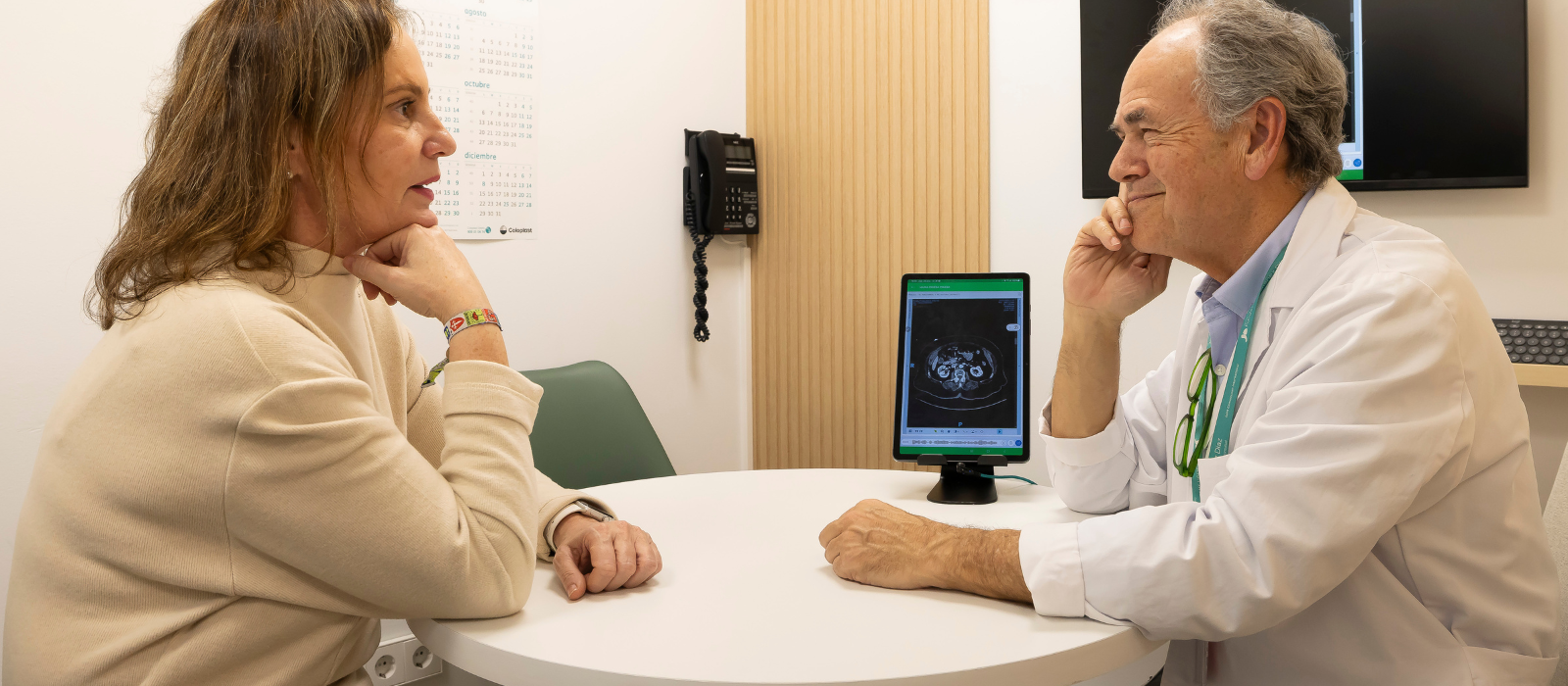
A consulting room on a sunny morning in January at Madrid’s Villalba University Hospital, part of the Quirónsalud Hospital Group. The patient is visibly nervous. Her head is full of questions and diffuse fears – which is not uncommon. Dr. Natalia Ruiz Micó, Head of the Orthopedic Surgery and Traumatology Department, tries to reassure her. “Today we are going to talk about your upcoming hip operation …” That is how the doctor begins her consultation with the patient. This is also not uncommon. It is a conversation that will be held thousands of times a day here and at other hospitals. One thing, however, is different: Dr. Ruiz can fully concentrate on her patient. She doesn’t have to study the long medical records or take any notes, which means that she is less stressed than she used to be. That’s because these tasks are now handled by Scribe, an intelligent AI-based dictating machine for medical purposes that she opens on her work phone.
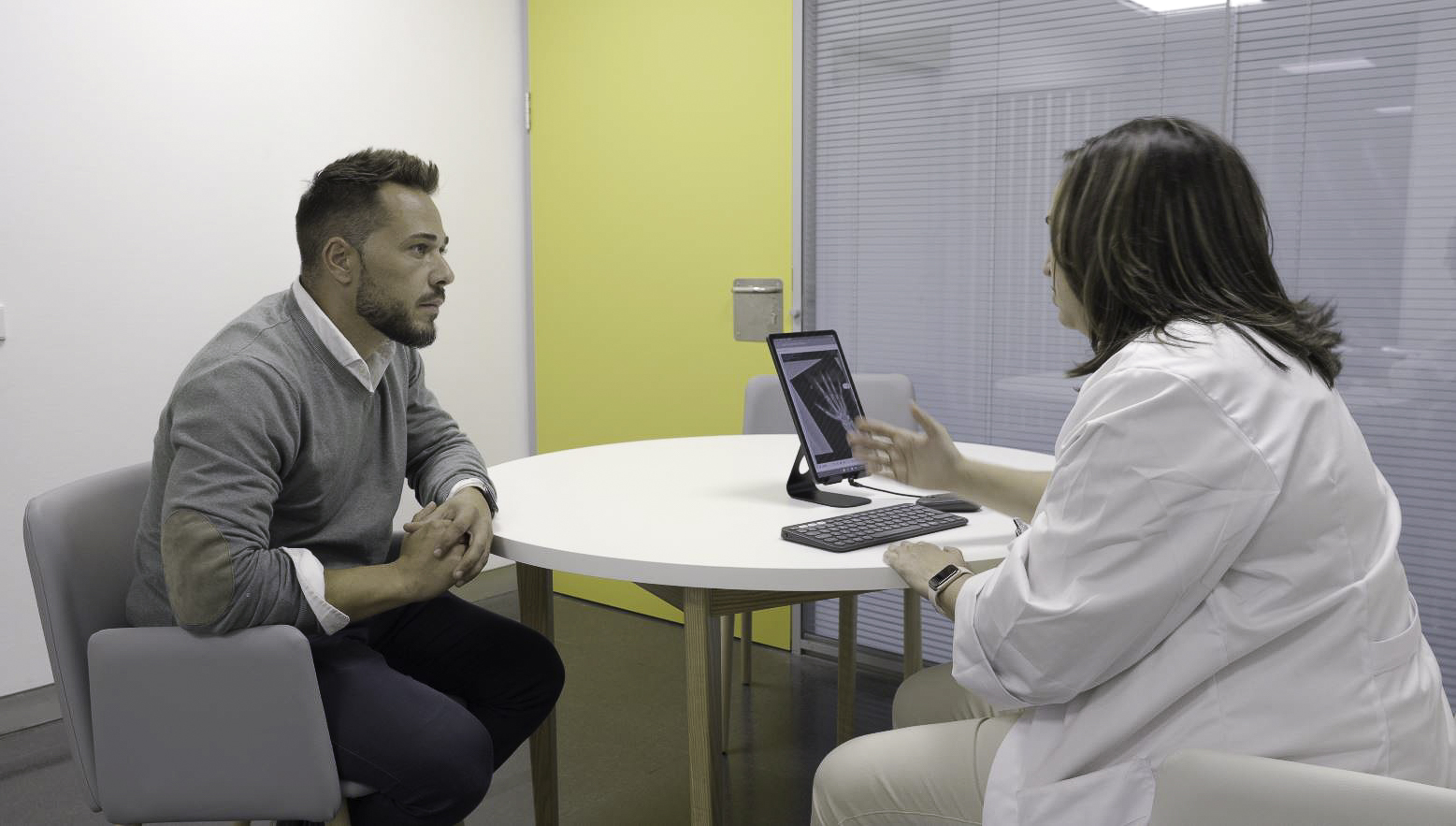
Scribe was launched in the summer of last year. To date, more than 4,000 doctors in a total of 50 Quirónsalud hospitals across Spain have already used it to carry out over 500,000 consultations. Both doctors and patients report positive experiences of the technology.
Among the first users was the Department of Orthopedic Surgery and Traumatology at Madrid’s Villalba University Hospital, where Dr. Ruiz is chief physician. While she talks to her patient, Scribe records the conversation, transcribes it, and summarizes the essential points and the resulting tasks. If necessary, the tool can even switch back and forth between several languages.
The task of clinical documentation was previously a tedious job that was shared among the hospital teams. The secretary’s office took on some of it, as did the assistant doctors on the ward, but on many an occasion the team of treating doctors had to do it themselves. Scribe now saves everyone on the team a great deal of time – or to be more precise, the time previously spent on documentation and administrative work during each consultation. “Medical documentation is a very important aspect of our work, but it is also very time-consuming. It has been difficult to automate until now because it requires special knowledge,” says Dr. Ruiz.
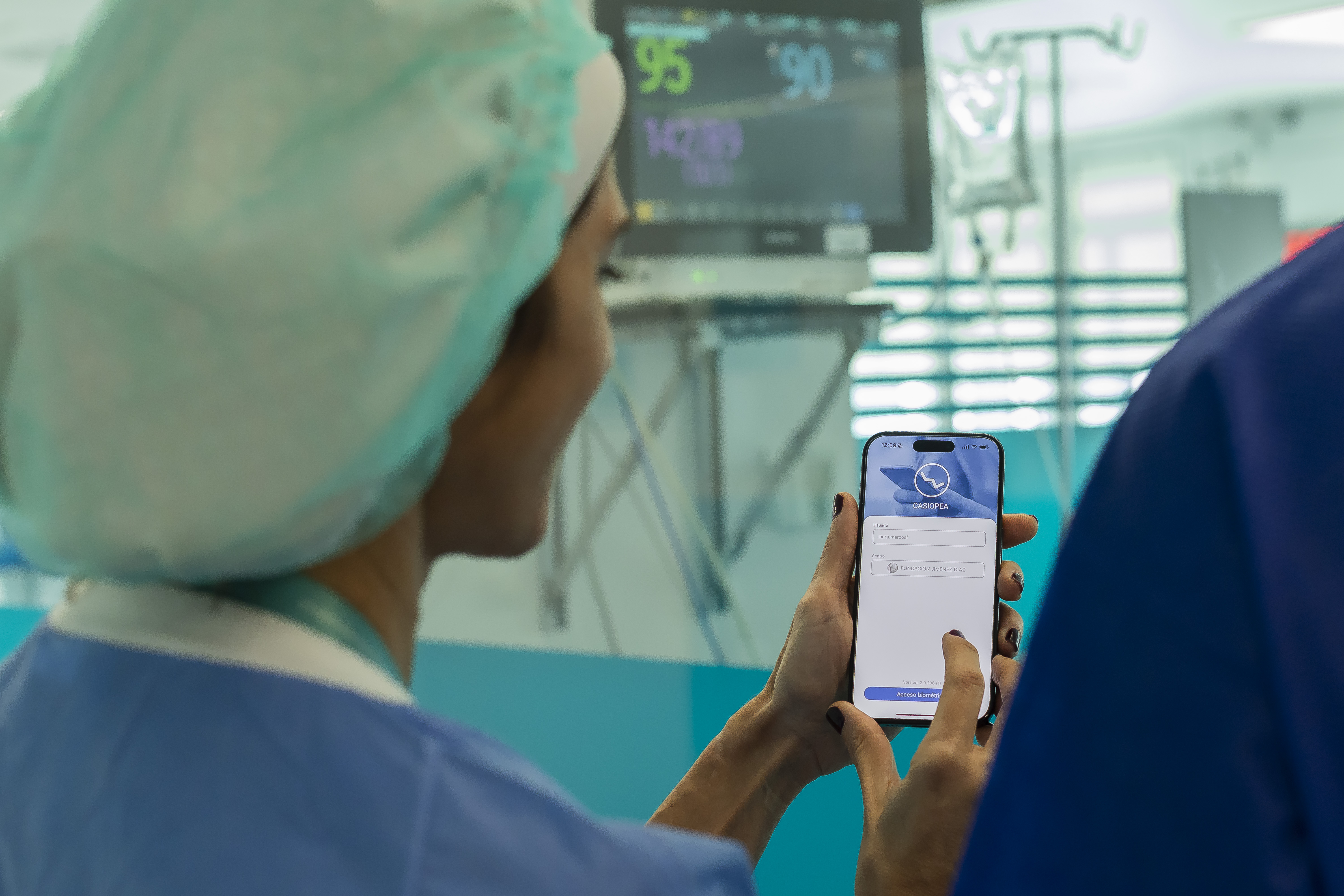
Technology with huge potential
Why is this now possible with Scribe? As is so often the case, the answer is AI, or more precisely, generative artificial intelligence, which has been enjoying a worldwide boom since the launch of ChatGPT. This type of AI can reliably process human speech and generate high-quality speech output in real time. Yet Scribe isn’t a product of Silicon Valley. Quirónsalud developed the AI solution itself in conjunction with an IT partner and has been testing it since June 2024.
“This technology has huge potential – and not just for Quirónsalud. Scribe helps to humanize healthcare and establish a much closer doctor–patient relationship. It frees medical teams from their administrative tasks and allows them to focus more on their patients,” says Dr. Jorge Short Apellániz, Deputy Medical Director of the Fundación Jiménez Díaz University Hospital in Madrid and one of the initiators of this project at Quirónsalud.
Yet the tool doesn’t just save time. It also guides the doctor independently through the consultation. “Based on the information collected, Scribe also suggests necessary diagnostic tests or therapy options,” explains Dr. Emilio Calvo, Head of Orthopedic Surgery and Traumatology at the Fundación Jiménez Díaz University Hospital in Madrid. “So even during a consultation, the tool highlights possible courses of action,” says Calvo. He stresses, however, that the final decision is still made by the doctor.
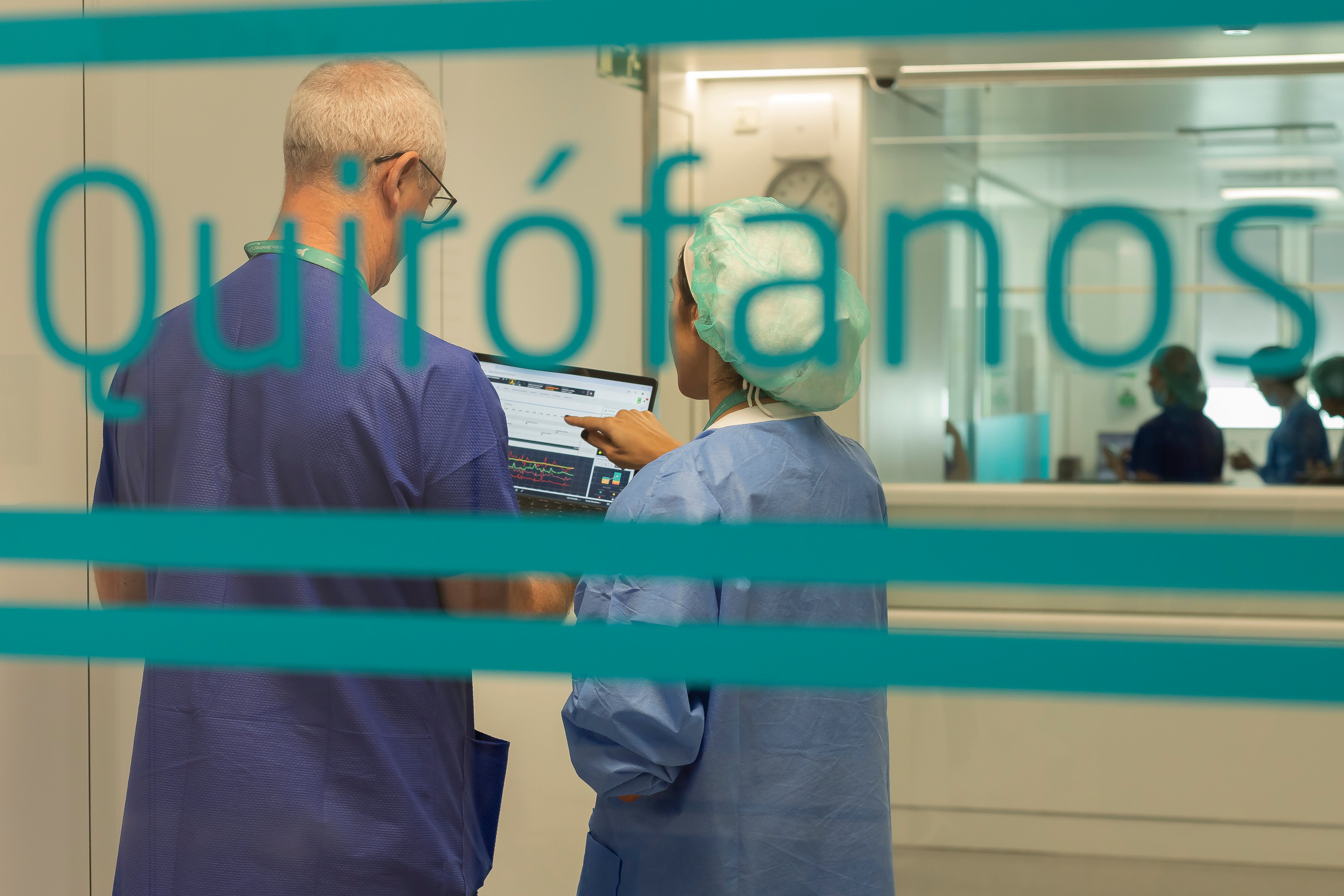
Part of an intelligent clinic network
In order for Scribe to be able to make such intelligent suggestions, it has not only been specially trained, but is also embedded in an overarching digital system developed by Quirónsalud: the Casiopea hospital portal (see box for more information). All information is consolidated here, including the digital medical records – provided that the patients have consented to this. Casiopea has also supplied key training data for Scribe. “This high-quality and very specific data ensures that Scribe does not invent information, but instead delivers relevant results,” explains Dr. Short Apellániz. Furthermore, IT security and data protection are of the utmost importance where sensitive data of this nature is involved.
And how have patients reacted so far to the new development? Dr. Carolina Gotera, senior pulmonology physician at the Fundación Jiménez Díaz University Hospital, gets a lot of positive feedback when she explains the program: “Most patients congratulate us because they recognize the potential of AI and can see how innovative we are. They think it is good that we have more time for them, and their comments are therefore very positive.”
Digital pioneer in Europe
With Scribe, Quirónsalud is continuing to consolidate its position as a digital pioneer in Europe – demonstrating how innovations in healthcare directly benefit people. “The tool improves communication between patients and medical staff, while minimizing any errors and misunderstandings,” summarizes Dr. Short. “At the same time, such tools increase efficiency and help to reduce the administrative burden for our employees. We can then all invest the time saved in interacting with the patients.” Quirónsalud plans to introduce the Scribe tool in all medical service areas and departments at its various hospitals across Spain in the course of 2025.
"It's a game changer"
For the development of Scribe, the Quirónsalud Operations Team was honored with the Else Kröner Award 2025. This internal award recognizes Fresenius teams for outstanding, innovative, and exceptional initiatives that bring the Fresenius Principles to life and carry on Else Kröner’s legacy.
Discover the people and ideas behind the innovation - watch the full interview now.
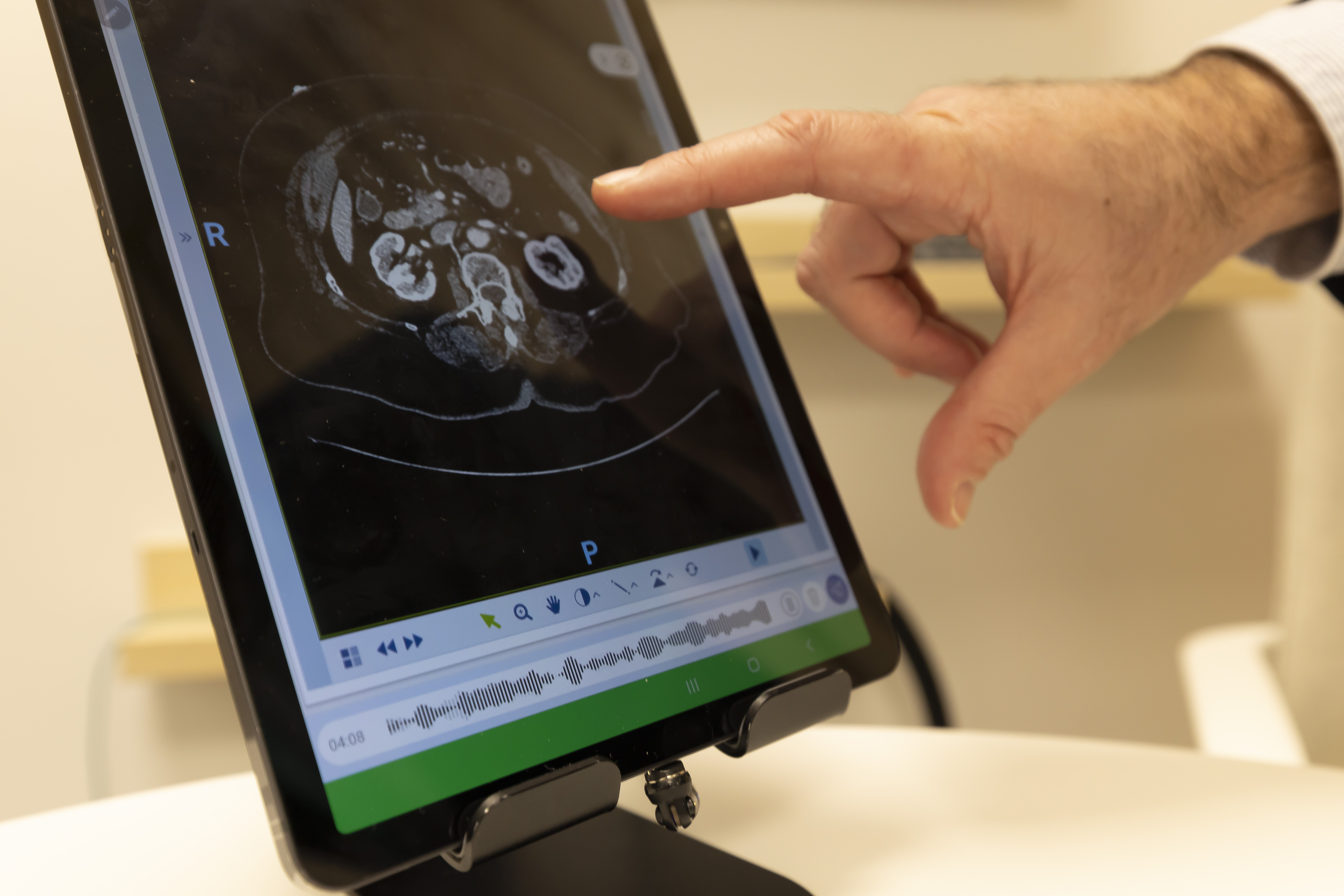
Casiopea – at the heart of the digital hospital
The Casiopea hospital portal – a so-called digital ecosystem – is a platform that Quirónsalud has been using throughout Spain since 2020. It optimizes patient flows and seamlessly connects all stages of the treatment process – from diagnosis and therapy to outpatient care. Almost eight million users in Spain are already connected to the system via a patient app. Doctors also use the Casiopea Mobility app on their smartphones, making it possible to arrange remote consultations, view laboratory results, and issue prescriptions, among many other things.
Fresenius is currently examining how the digital Casiopea platform can be transferred to Helios hospitals in Germany as part of a pilot project, taking into account the specific requirements of the German market. Among other things, it is working on a central communication interface between the doctor and patient.
Learn more about AI at Fresenius
Fresenius Sustainability Highlights Magazine 2024
